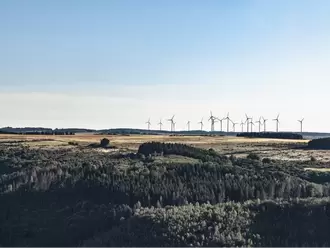 What is sustainability? In 21st Century terms, "sustainability" is the practice of living in a way that is not disruptive to the biosphere (the systems and areas of the earth in which life exists), but rather living in a way that instead ensures that the earth's systems can flourish without impediment. Awareness of the need for sustainable practices often revolves around the intent to preserve the well-being of the earth for future generations: “Concern about sustainability must be based on moral obligations towards future generations—not just personal self-interest” (Dresner, Simon). Certainly, we must consider our sustainability goals from the perspective of how it will benefit our current lives, but what Dresner is calling for here is that we shift our view to allow for the acknowledgment that the way we live now directly impacts future generations, as we are responsible for creating the world in which they will someday live. So, how do we go about shifting our lifestyle toward a more sustainable practice? British fashion designer, Vivienne Westwood offers some simple advice on the topic: “Buy less. Choose well. Make it last.” While she is directly commenting on sustainability when related to clothing, this applies to other facets of sustainability and waste reduction. For example, when living mindfully, you may notice that you are often purchasing a food item and not consuming all of it prior to its expiration date, or that the packaging produces an excess amount of waste. The next time you are at the store that might be an item that you make the conscious decision not to purchase again. The director of Keep Chadron Beautiful, Susan Hucke, shared a bit of her journey toward a sustainable lifestyle, stating: “I was considering small changes that I could make in my life. One step I took, was to stop purchasing coffee filters and instead began using a reusable coffee filter. I was speaking about this with some kindergarten students and told them, ‘That’s 365 fewer coffee filters being used every year! And that’s just me. Imagine if I got my all my friends to do that with me.’ Of course, there was that one, skeptical little voice that piped up in the crowd, ‘How many friends do you have?’” While humorous, this innocent question calls attention to a key point. How many people can we potentially influence with our actions? From in-person interaction, to online presence, the small changes we make might set an example for those around us. Small Sustainability Steps Include:
A key part of making the switch to more sustainable practices is being gentle on yourself. This is not the time to clear your kitchen of every potentially harmful product, and espouse eating only those foods that can be found at the local farmers market, nor should you start a garden if you don’t have the time, energy and financial resources available to maintain one. Instead, your focus should be on making simple, affordable, and effective swaps tailored to you and your family’s needs. This slower shift toward sustainable practices can also help prevent the onset of what has been termed ‘Eco Guilt’ or ‘Green Guilt’. As Huffpost columnist and environmental journalist Jennifer Grayson acknowledges in her article on eco-guilt: “Being overwhelmed often leads to being paralyzed. After all, guilt, by definition, is only the awareness (and resulting anxiety) that we are doing something wrong—it doesn’t mean we’re necessarily going to do anything about it.” Rather than trying to completely change your lifestyle in a matter of days, weeks, or even months, the transition to a sustainable lifestyle with a focus on waste reduction is something that should happen over the course of a lifetime. Works Cited Cartner-Morley. “Out There.” The Guardian. (2020). Dresner, Simon. The Principles of Sustainability. (2002). Grayson, Jennifer. “Eco Etiquette: How to Deal with Green Guilt.” Huffpost.com. (2011).
0 Comments
|
AuthorStef Glass is the Education Coordinator for Keep Chadron Beautiful. She graduated from Chadron State College with her BA in English Literature and minors in History and Creative Writing in May of 2018. Archives
June 2022
Categories |
Proudly powered by Weebly

 RSS Feed
RSS Feed